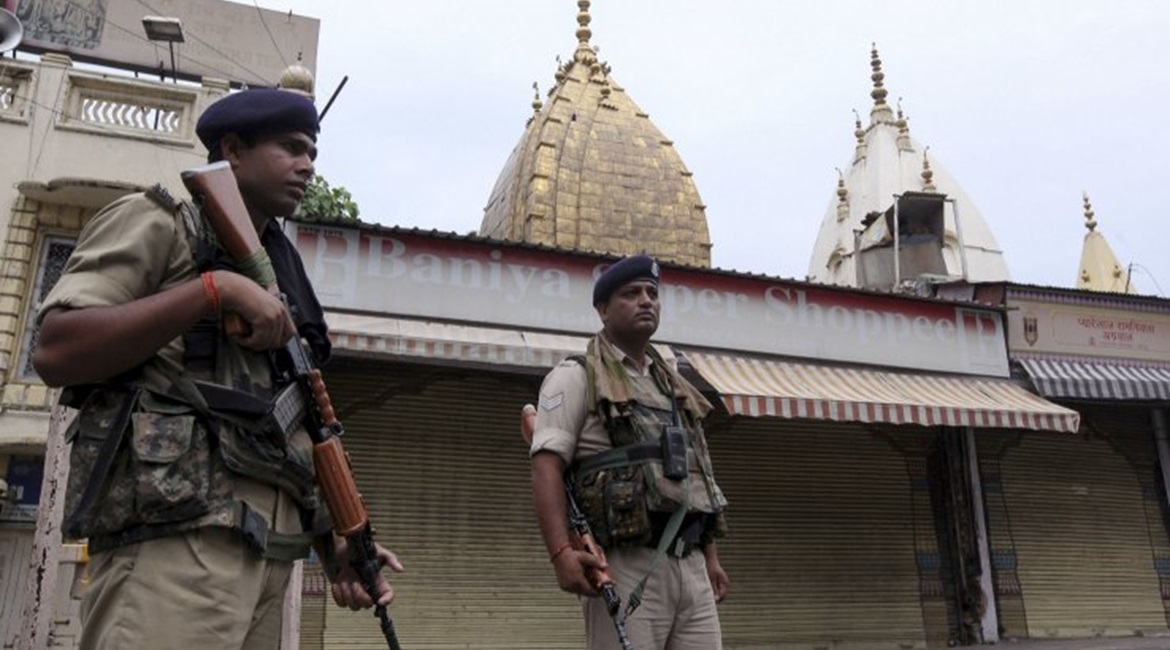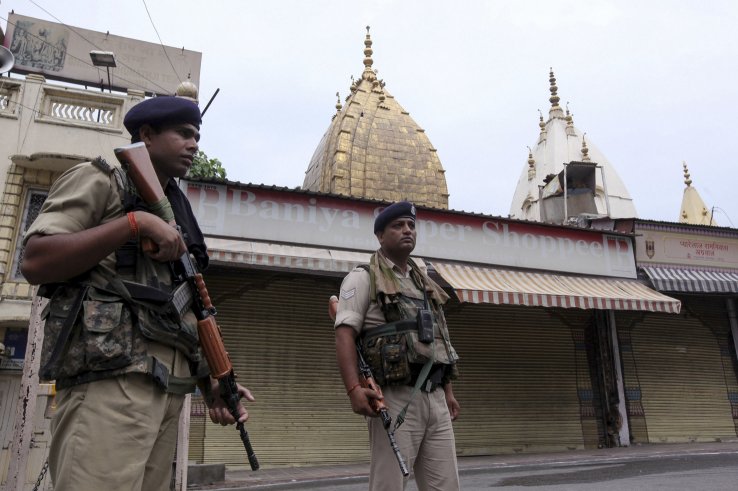
Tensions between India and Pakistan have escalated significantly since New Delhi announced on 5 August its decision to scrap the special constitutional status it had granted to its portion of the disputed northern region of Jammu and Kashmir about 70 years earlier.

Indian security personnel stand guard next to closed shops in Jammu on 7 August. New Delhi has deployed additional security forces to Jammu and Kashmir following its 5 August decision to revoke the state’s special constitutional status. (Rakesh Bakshi/AFP/Getty Images)
In an attempt to reduce the growing hostilities between the nuclear-armed neighbours, a spokesperson for India’s Ministry of External Affairs urged Pakistan on 8 August to preserve the “normal channels” of diplomatic communication and review what he described as Islamabad’s “regrettable” decision to downgrade diplomatic ties and suspend trade between the two countries.
A day earlier Pakistan had expelled India’s High Commissioner to Islamabad, adding that its own envoy, who has yet to assume the position, would not move to India because of New Delhi’s revocation of Article 370 in the Indian constitution. This statute had granted the Indian-administered state of Jammu and Kashmir special powers since the early 1950s to make its own laws and fly its own flag.
One of the more controversial provisions of Article 370 included the ban on outsiders acquiring property and holding state government jobs in Kashmir, which is India’s sole Muslim-majority region.
On 5 August New Delhi also announced that the state of Jammu and Kashmir would be bifurcated into the federally administered territories of Ladakh – which borders Tibet and is a predominantly Buddhist region – and Jammu and Kashmir. Pakistan, which has controlled a third of the Kashmir region since gaining independence in 1947, also claims all of these regions in their entirety.
Looking to read the full article?
Gain unlimited access to Janes news and more...






